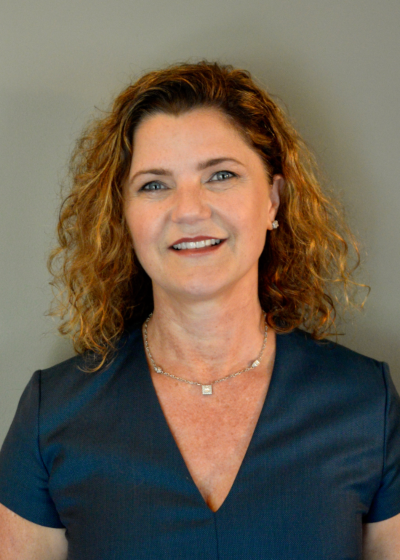
Michelle Berrey Appointed President of R&D and Chief Medical Officer at Intercept

North Carolina Biotechnology Center executive board member M. Michelle Berrey, M.D., has been appointed the president of research & development and chief medical officer at New-York-based biopharmaceutical innovator Intercept Pharmaceuticals, Inc.
Intercept studies progressive non-viral liver diseases, both creating and producing treatments to improve patients’ quality of life. What started out of a New York City apartment in 1982, the company – now nearly 500-strong – leads the field in developing therapies for diseases with no cure and no standard treatment.
Berrey received a master’s degree in public health from Emory University as well as an M.D. from the Medical College of Georgia. After both degrees, she performed her residency in internal medicine at the University of North Carolina at Chapel Hill.

Most recently, she was the president and chief executive officer of Chimerix, a Durham-based biopharmaceutical company that aids in developing medicines for cancer and other serious diseases.
This role, she says, “allowed me to establish closer relations with other life sciences companies in North Carolina, with investment firms in the Triangle, and especially with leading researchers at our North Carolina universities.”
Before that, Berrey served as chief medical officer of Pharmasset, a pharmaceutical company treating viral infections like hepatitis C, which has since been acquired by Gilead. Berrey was also vice president, viral diseases, clinical pharmacology & discovery medicine at GlaxoSmithKline. She currently serves on the scientific advisory board for ViiV Healthcare, a joint venture established by GSK and Pfizer that researches and develops new HIV medicines and advances care for people living with HIV.
GSK is a British pharmaceutical giant with a vast portfolio of medicines, from HIV to oncology, and with multiple facilities in North Carolina.
NCBiotech welcomed Berrey to its board of directors in 2015, where she has since become an executive committee member.
“It has been an honor,” she said. “I have enjoyed learning more about the cutting-edge research taking place in North Carolina, and how we can all work together to make sure the companies that are envisioned and begin in North Carolina will continue to grow and bring long-term benefits to our friends and families in our great state.”
Praise from NCBiotech leader Doug Edgeton
Doug Edgeton, president and CEO of NCBiotech, praised Berrey’s accomplishments. “North Carolina is fortunate to have an increasing number of people with leadership talent available in the life sciences when business opportunities arise, such as this one at Intercept,” he said. “Dr. Berrey’s talents lend themselves well to Intercept’s business model.”
“She will be a game changer for the company,” he continued. “She has proven herself most capable in numerous roles, including her six years of service as a North Carolina Biotechnology Center board member, and more recently as a member of the board’s executive committee, which helps guide strategy and direction for the Center’s leadership team.”
Berrey’s multi-decade career in the life sciences equips her to act in this elevated role.
“A majority of my career has been spent in viral diseases and their sequelae, including liver fibrosis,” Berrey said. “I look forward to leveraging this experience to help the Intercept R&D team continue to build on its strong legacy of clinical research in liver disease.”
At Intercept, she will continue work on the clinical development and research programs for various liver diseases.
The science behind the curtain
Intercept’s science revolves around the connection between the farnesoid X receptor (FXR) and bile acid. FXR is a key regulator of bile acid, and it is found in both the liver and the intestine. Bile is produced in the liver and helps digest the fats in food. Complications between the receptor and acids produce diseases like primary biliary cholangitis (PBC) and nonalcoholic steatohepatitis (NASH).
PBC is a progressive autoimmune disease with no cure, which destroys the bile ducts that deliver bile to the small intestine. Without functioning ducts, bile stays in the liver and damages its cells, which can lead to cirrhosis (scarring) or liver failure. It disproportionally affects women, and it’s the leading cause of liver transplant. NASH is the chronic accumulation of liver fat in people who drink little to no alcohol, which has an unknown cause and can lead to cirrhosis.
Intercept’s therapy pipeline utilizes obeticholic acid (OCA), a semi-synthetic bile acid equivalent, to treat liver diseases. Under the prescription name “Ocalvia,” OCA limits the amount of bile the body makes and helps with its movement through the liver. Its OCA therapy treating PBC is in Phase 4 clinical trials, while the therapy treating NASH is in Phase 3. With the help of Berrey, Intercept’s therapy can greatly improve the quality of life for patients around the world suffering with liver diseases.
“Dr. Berrey brings a wealth of leadership experience in drug development and executive management to Intercept,” said Jerry Durso, president and CEO of Intercept, in a news release. “She joins us at a pivotal time for the company as we continue to drive our foundational PBC business, advance our dialogue with regulatory authorities on our NASH program, and build our pipeline.”
